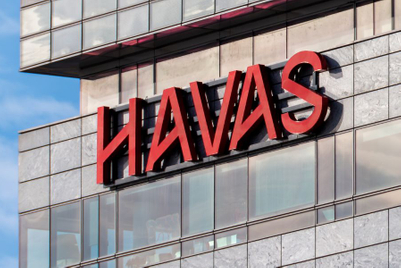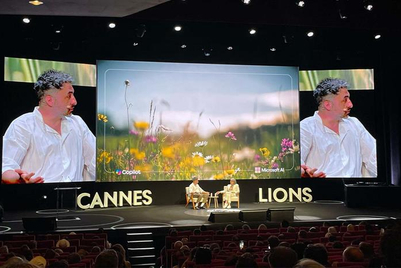.png&h=570&w=855&q=100&v=20250320&c=1)
Havas is to offer key staff up to €37.5 million ($40.6 million) in share awards as part of its Dutch stock market listing, following its planned separation from parent company Vivendi in December.
The French agency group said it will launch the Havas Equity Incentive Plan for executive directors, who include Yannick Bolloré, the chairman and chief executive, and an undisclosed number of “managers”, “corporate officers” and “other employees” across the 23,000-strong business.
Vivendi did not offer annual share awards to Havas executives during 2024, in anticipation of the spin-off, which was first announced in December 2023, and Havas said it would launch the new Equity Incentive Plan “promptly” after its stock market listing to incentivise staff.
Eligible staff will receive “initial grants” of Havas shares worth up to €37.5 million ($40.6 million), according to its stock market prospectus.
The share awards will be a mix of performance shares, which will be subject to financial performance, and restricted stock units (RSUs), which will be based on continued service for the next two years, to increase staff retention. All employees in Havas’ French operations will receive RSUs above a “minimum” level of seniority.
Separately, Havas said it may pay up to €7.5 million ( $8.1 million) in cash bonuses as an “exceptional award” to “senior management” and “other senior executives or employees” who are involved in the stock market listing.
The “exceptional award” recognises “the additional workload, time pressures, change and transformation that such employees have been subject to”, the stock market prospectus said.
It means Havas expects to offer a total of up to €45 million ($48.7 million) in share awards and cash bonuses to staff after its stock market debut, although the agency group regards the equity incentive scheme and the exceptional award as separate.
Vivendi has told investors it wants to break itself up because its share price has been suffering what it called a “conglomerate discount” and it plans to list Havas in Amsterdam, TV operator Canal+ in London and its Lagardere publishing assets on a secondary stock exchange in Paris while keeping Vivendi as a listed investment vehicle.
New structure, board and voting rights at Havas
Havas’ 369-page stock market prospectus explains the new structure of the agency group and warns about some risks because it will become a standalone business — seven years after Vivendi acquired Havas, the world’s sixth largest agency group, in 2017.
Havas “will be a smaller and less diversified group” than when it was part of the wider Vivendi group and “there is a possibility it may not have access to financial and other resources” of Vivendi, the prospectus points out.
Most Vivendi shareholders will receive the same number of shares in Havas as a result of the spin-off. Bolloré Groupe, which is controlled by Vincent Bolloré, the father of Yannick Bolloré, and other Bolloré family interests will hold 31% of the shares in the new structure.
Havas will have multiple classes of shares in order to reward the “loyalty” of shareholders who hold the stock for a longer time. A shareholder who holds Havas stock for two years will get two votes per share and a shareholder who holds the stock for four years will receive four votes per share.
Havas also plans to create a special foundation, “governed by Dutch law”, to protect itself against an “unsolicited takeover bid” or “change of control” that does not have the support of a majority of the directors.
The foundation will have a “preferred share” that gives the board the right to “veto” any move to dismiss the chairman of Havas or reduce his “power” for a period of eight years after an unwanted bid.
Non-executive directors on the new Havas board include Marie Bolloré, who is a director of the systems and telecoms division of Bolloré Groupe and a younger sister of Yannick Bolloré, and Ian Osborne, who is the founder of Osborne & Partners, a boutique UK consultancy firm, and a former adviser to Michael Bloomberg.
Senior management includes Donna Murphy, the chief executive of Havas Creative Network and Havas Health Network, and Peter Mears, the global chief executive of the other key division, Havas Media Network, although they are not mentioned by name in the prospectus.
The Bolloré family’s shareholding in Havas above the 30% threshhold means it has "significant influence" over the company, the prospectus said.
Moving back into growth in 2025
Havas said it expects revenues to decline by between zero and 1% on an organic basis in 2024 — which would be behind several rivals, notably Publicis Groupe and Omnicom, and roughly in line with WPP — and to increase revenues by “in excess of 2%” in 2025.
Havas plans a capital markets day in London on 19 November to woo investors, ahead of the planned listing in Holland, which requires the approval of Vivendi investors in a vote on 9 December. Shares would begin trading on 16 December.
Reuters has reported that CIAM, a Paris-based investment fund and minority shareholder, will appeal to France's financial watchdog AMF to protect minority shareholders’ rights as part of the break-up of Havas, Canal+ and Lagardere.
“Only Vivendi’s controlling shareholder, the Bolloré Groupe, would benefit from the listing of the three units on foreign or less regulated markets,” CIAM said in a statement.
Vivendi declined to comment. However, a source familiar with the situation pointed out the objective of the spin-off of assets was to create value for all shareholders.
Yannick Bolloré told Campaign in March he wants to remain in charge of Havas until at least 2035. He earned €3.1m in the job last year.
The agency group’s portfolio also includes a majority stake in Uncommon Creative Studio for which Havas recognised a “goodwill” cost of €107 million ($116 million) to cover the deal, according to the prospectus, “based on estimated total consideration” of €115 million, less “net assets acquired of €8.7 million”.
At the time of the acquisition in July 2023, Havas said Uncommon could be worth million about $ 151 million ((£120/€139 million) if the UK agency hit targets at the end of a six-year earn-out.


.jpg&h=334&w=500&q=100&v=20250320&c=1)


.png&h=334&w=500&q=100&v=20250320&c=1)




.png&h=334&w=500&q=100&v=20250320&c=1)


.jpg&h=268&w=401&q=100&v=20250320&c=1)

.jpeg&h=268&w=401&q=100&v=20250320&c=1)
.png&h=268&w=401&q=100&v=20250320&c=1)
.png&h=268&w=401&q=100&v=20250320&c=1)

